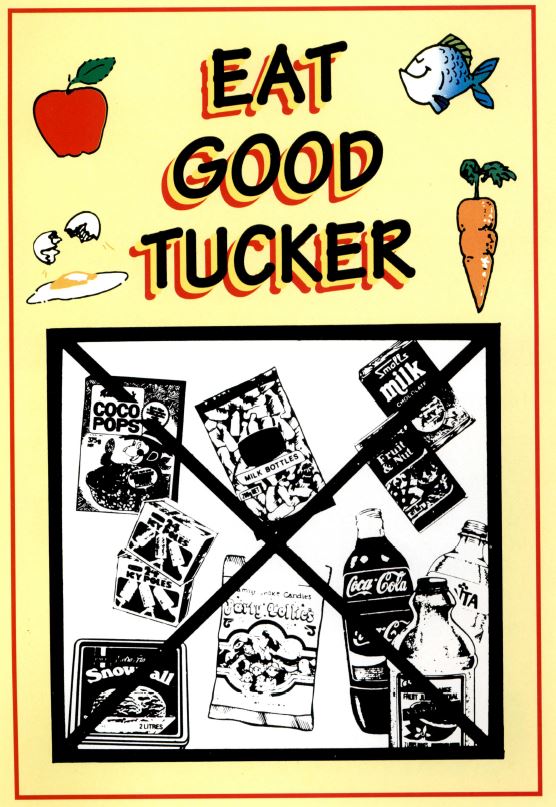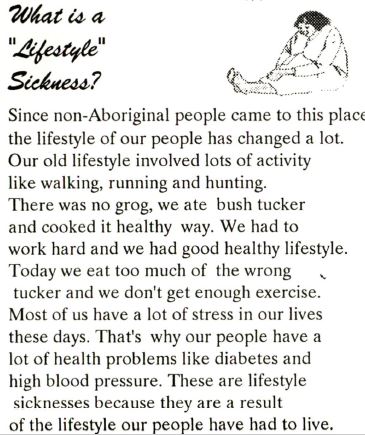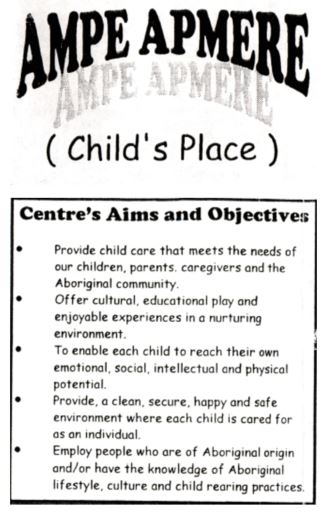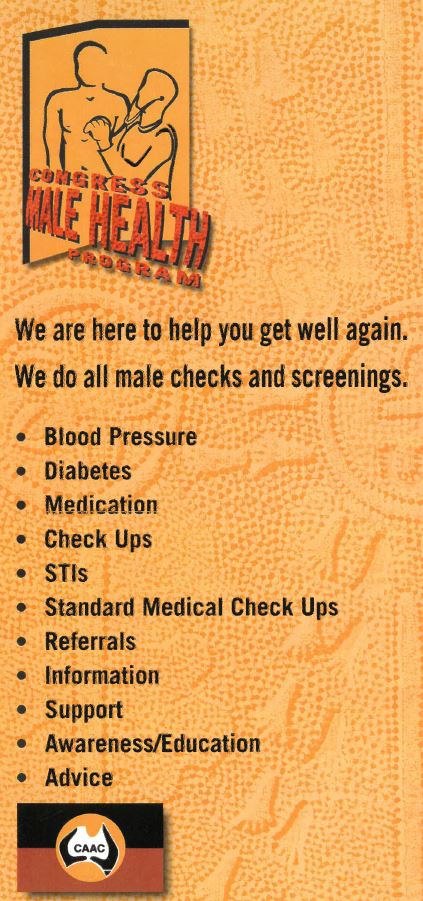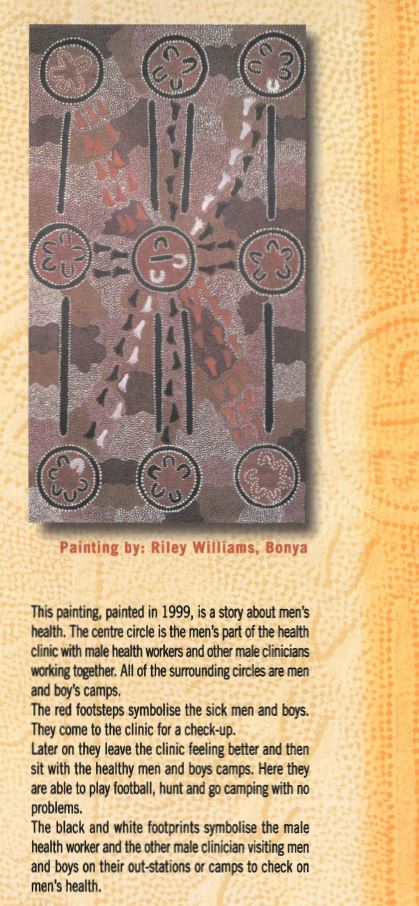Health isn’t just about not being sick. It’s about all the things that keep people healthy and strong.
Congress has been talking up for health and giving people good messages for health for nearly fifty years.
Here we look back at some old Congress health promotion messaging.
The Congress Health Promotion logo (above) shows things Aboriginal people need to be healthy and strong. Aboriginal artists who contributed to this logo in 1988 said the logo shows people taking care of each other, looking after children and old people, eating good tucker, drinking fresh water, telling stories and talking, getting exercise, growing generation after generation and families sticking together.
These ideas about health also match the first Aboriginal Health Strategy which was developed in the 1980s by a working party including many Aboriginal leaders. They said that health is “not just the physical well-being of the individual but the social, emotional and cultural well-being of the whole community”.
This logo was also made into a badge:

Sources: Congress Health Gossip #2 May 1988; National Aboriginal Health Strategy 1989, Reprint 1996.
Here is some other historical health promotion messaging:

